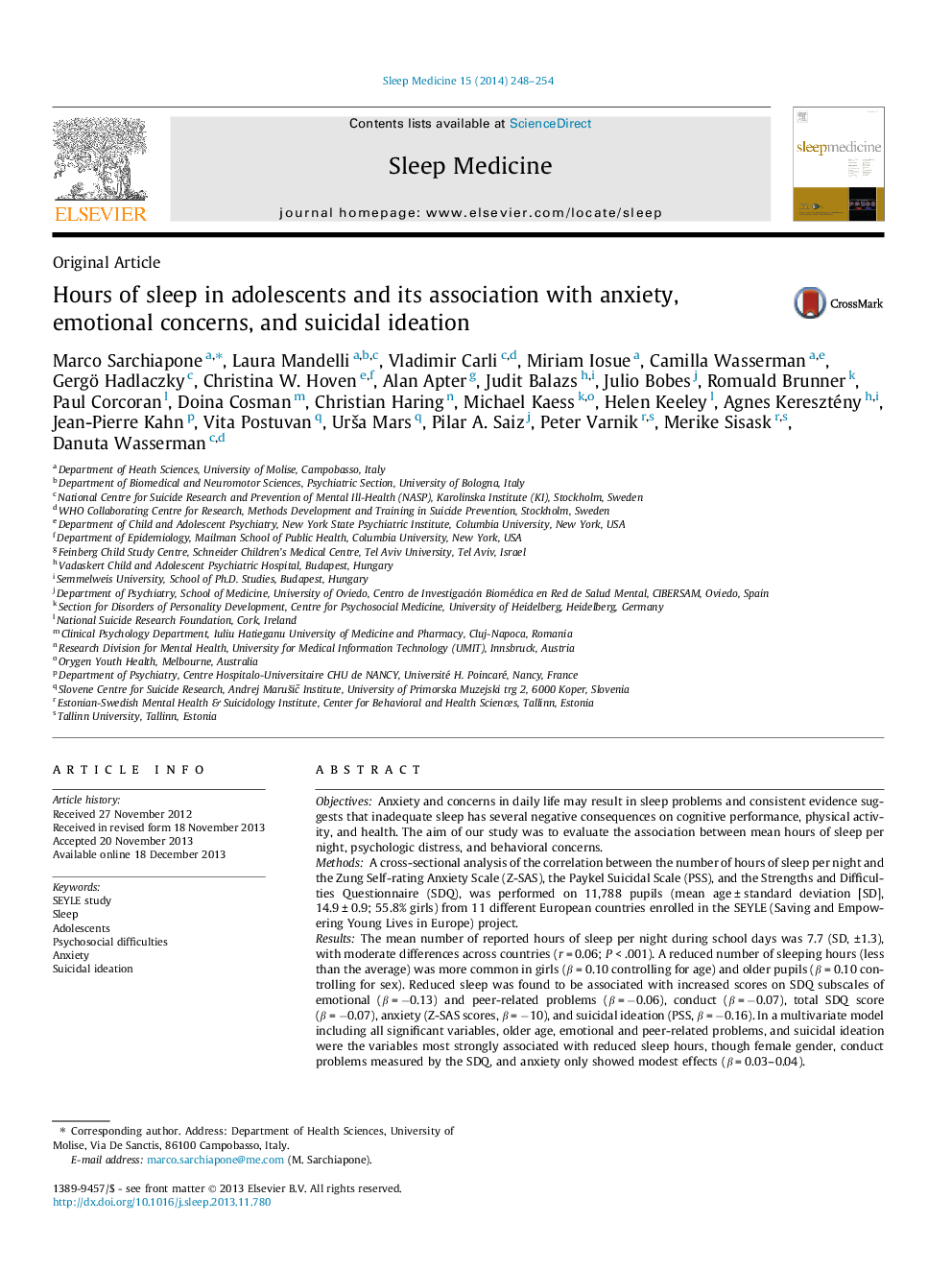| کد مقاله | کد نشریه | سال انتشار | مقاله انگلیسی | نسخه تمام متن |
|---|---|---|---|---|
| 3176249 | 1200254 | 2014 | 7 صفحه PDF | دانلود رایگان |
ObjectivesAnxiety and concerns in daily life may result in sleep problems and consistent evidence suggests that inadequate sleep has several negative consequences on cognitive performance, physical activity, and health. The aim of our study was to evaluate the association between mean hours of sleep per night, psychologic distress, and behavioral concerns.MethodsA cross-sectional analysis of the correlation between the number of hours of sleep per night and the Zung Self-rating Anxiety Scale (Z-SAS), the Paykel Suicidal Scale (PSS), and the Strengths and Difficulties Questionnaire (SDQ), was performed on 11,788 pupils (mean age ± standard deviation [SD], 14.9 ± 0.9; 55.8% girls) from 11 different European countries enrolled in the SEYLE (Saving and Empowering Young Lives in Europe) project.ResultsThe mean number of reported hours of sleep per night during school days was 7.7 (SD, ±1.3), with moderate differences across countries (r = 0.06; P < .001). A reduced number of sleeping hours (less than the average) was more common in girls (β = 0.10 controlling for age) and older pupils (β = 0.10 controlling for sex). Reduced sleep was found to be associated with increased scores on SDQ subscales of emotional (β = −0.13) and peer-related problems (β = −0.06), conduct (β = −0.07), total SDQ score (β = −0.07), anxiety (Z-SAS scores, β = −10), and suicidal ideation (PSS, β = −0.16). In a multivariate model including all significant variables, older age, emotional and peer-related problems, and suicidal ideation were the variables most strongly associated with reduced sleep hours, though female gender, conduct problems measured by the SDQ, and anxiety only showed modest effects (β = 0.03–0.04).ConclusionsOur study supports evidence that reduced hours of sleep are associated with potentially severe mental health problems in adolescents. Because sleep problems are common among adolescents partly due to maturational processes and changes in sleep patterns, parents, other adults, and adolescents should pay more attention to their sleep patterns and implement interventions, if needed.
Journal: Sleep Medicine - Volume 15, Issue 2, February 2014, Pages 248–254
